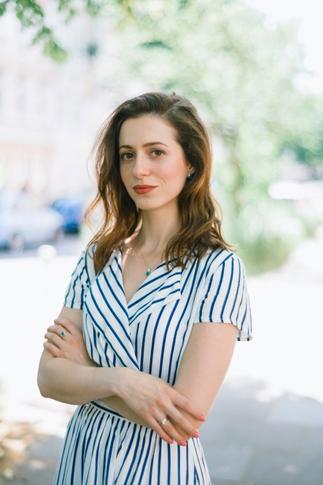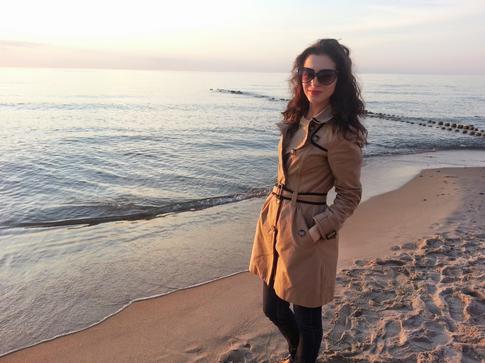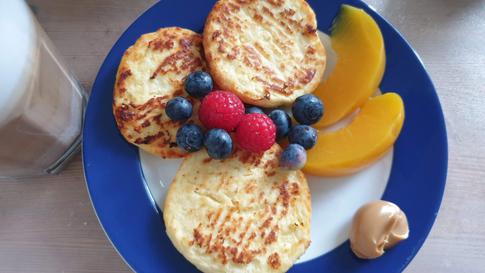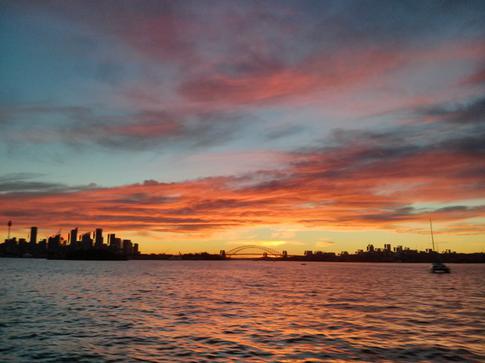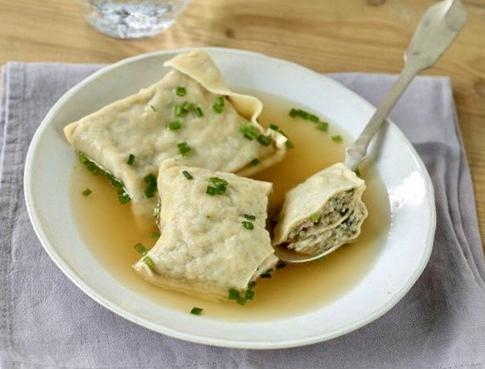XFEL: Diversity Day
Diversity Day
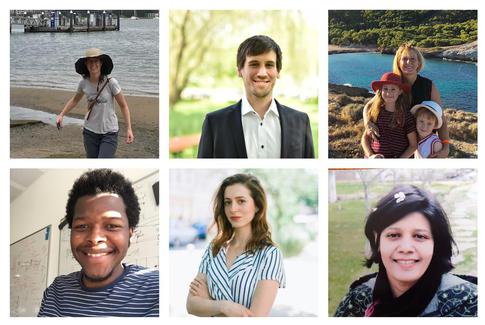
As an international, science organisation, diversity is central to our work. World-class research & innovation builds on diverse experiences & ideas. To celebrate Diversity Day, our colleagues talk about living in Germany, their culture and home countries.
At European XFEL we value individuality and diversity, and we are constantly working hard to ensure a positive and welcoming work environment where everyone, irrespective of religion, cultural background, gender, and sexual orientation, is respected and can be themselves.
In celebration of the International Day of Diversity (21 May), and Tag der Vielfalt (26 May), several European XFEL staff members from different continents share their stories about living and working in Germany, and pay homage to their culture and home countries.
Zunaira Ansari
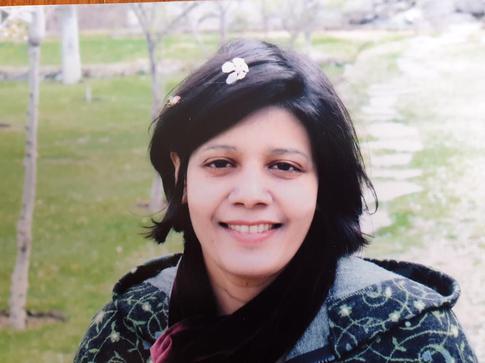
Zunaira Ansari. Photo: Z. Ansari
I completed my master’s degree in Pakistan and then obtained a full scholarship to do my PhD in London. Then, to everyone’s surprise, I decided to move to Germany once I had finished my PhD. Such is fate! My parents were especially shocked at my decision – they had educated me in English and they could not understand why I would move to Germany not having a command of the German language. Growing up, the only things I associated with Germany were Mercedes, the stationery company Staedtler (my parents always bought very rectangular and boring looking erasers and graphite pencils for us from this company. It was very good quality stationery, but for a child completely uninteresting! WWII and Helmut Kohl!
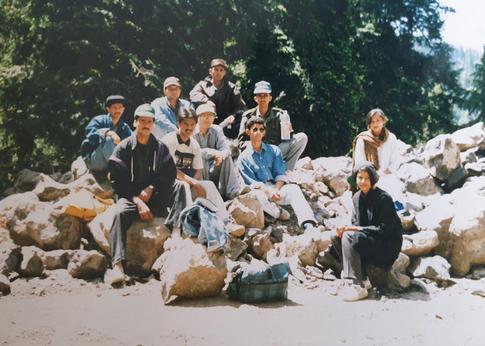
A field trip I did with my class in around 1993. The area is in the mountains near Abbottabad, a picturesque, sleepy little town in the north of Pakistan (it became quite famous because of Osama Bin Laden). Please note how similar it looks to areas in Europe. Photo: Z. Ansari
Moving has not made a huge impact on my family life because my family has also been in motion. Family for me is not just a spouse, children, parents and siblings, but also uncles, aunts, cousins, grand uncles and aunts and close friends. From where I am currently situated, I am at a distance of 2 to 8 hours away from various family members. However, the current COVID-19 pandemic has made me re-think about this separation in time. Sometimes, it is tough - one cannot get there as quickly as one would like to.
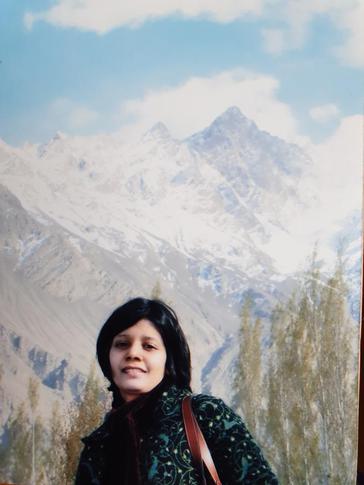
More recent pictures shot in Skardu, Pakistan. This area is famous for Sufis and its mountains. K2 is only 86 km away from this place, but it takes a whole day to reach it. You see 6500m high mountains in the background. When we were there, the apricots were in full bloom! Photo: Z. Ansari
I have found the biggest difference in culture between my home country and Germany, is the difference in mentality and way of thinking. I come from a culture where things are mystified. I feel this is done sometimes intentionally to hide reality. Effect is attributed to the will of God. Cause is not investigated. In Germany cause and effect are treated rationally. And this, I would say, is the biggest difference between Pakistani and German culture.
Robert Schaffer
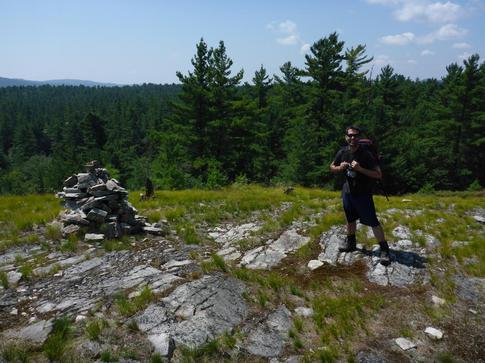
Robert Schaffer in Killarney, Ontario, Canada
It might sound unusual, but I really miss the cracker selection from Canada. There are some decent types here, but my favorite flavors are all missing. Every trip back to Canada, I return with a bit of maple syrup and a big box of crackers.
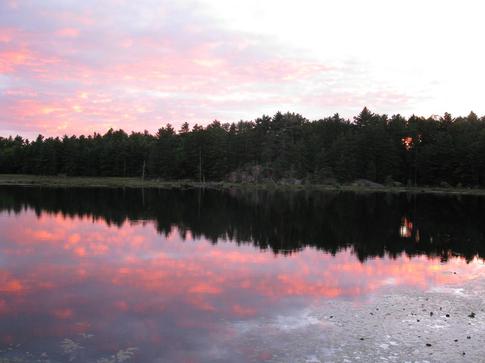
Killarney, Ontario, Canada. Photo: R. Schaffer
Anastasiia Vinarskaia
I work as a travel office assistant in the Travel Office, which belongs to the User Office group. I joined European XFEL in 2017. My working responsibilities include handling and the follow up on travel workflow for staff, visitors and guests.I come from Russia. I have a combination of Russian, Ukrainian and Polish blood- my surname is originally Polish. So the word “diversity” is well known for me- I was born in Ukraine, and grew up in Russia in multicultural surroundings. As a child I used to spend a lot of time in Ukraine, so I was influenced by Ukrainian culture quiet a lot. I do understand Ukrainian language and can even speak a bit. Ukrainian language is very melodic.
Although I was born in Ukraine, I consider Russia as my motherland and Kaliningrad as my home city. Kaliningrad it is a small territory of Russian Federation, sandwiched between European countries. Formerly known as Königsberg, that is why all current inhabitants call Kaliningrad “Koenig” as a short variant from Königsberg. Being a Russian city, Kaliningrad today is home to communities of Ukrainians, Belorussians, Tatars, Germans, Armenians, Polish, and Lithuanians and other ethnicities. This city is also a good example of eclecticism in architecture: you can see in one spot, a 12th century Prussian cathedral neighbored with modern buildings and constructions from the Soviet Union’s time. We still call some of the districts and architecture monuments by the original Prussian names.
As a person, living in Kaliningrad you should have the international passport and Schengen visa in it. So it is good habit to carry the passport with you - who knows where the day will end up? Many Kaliningrad residents travel to Poland and Lithuania to buy some western foods for example, which are not available in Russia. One more fascinating fact – Kaliningrad is located on the Baltic Sea coast and there are 185 rainy days a year. Remind you of Hamburg, doesn’t it? My favorite places in Kaliningrad are “Fish Village” and the seaside, especially Curonian Spit.I moved to Hamburg, Germany in 2017 with my husband. Now he works in one of the scientific organizations in Hamburg. We moved from Moscow, where we were living at that time. Although, it was difficult decision, we do not regret it. Moving to another country helps you to get out of your comfort zone and to discover yourself. It is good experience and a challenge, which will broaden your mind.
Our new hobby here is travelling and in 2019 we visited 8 new countries, 33 cities and 124 new places (thanks to Google statistics). We were integrated into the German culture quiet fast and have learned the language, met a lot of nice people and made friends. We have even got used to the climate, but sometimes we really miss the snow. During the winter time in Hamburg I miss frosty cold sunny mornings with crunchy snow.
The only thing I really miss in Hamburg is Russian-Ukrainian cuisine and some of the products. Usually we go out to eat and we order dishes from Italian, Spanish or Asian cuisine and German beer, of course. At home we cook traditional dishes from Russian-Ukrainian cuisine such as soups, Borsch, Vareniki and Pelmeni (dumplings). Products which are seldom in Hamburg are buckwheat and Tworog (cheese). Russian people have the idiom: “Eat breakfast yourself, share lunch with a friend, and give dinner to the enemy”, so the breakfasts are usually very nourishing. So, this is one of our breakfasts at home called “Sirniki” (cheese pancakes).Russia is not only famous sightseeing places, stereotypes about harsh winters and Russian character, it is also a beautiful, varied, large country with a unique nature and picturesque landscape. There are still many sights I would like to see including the frozen Baikal Lake, the Artic lights in Murmansk, the Scarlet Sails festival in St. Petersburg and the beautiful subway stations in Moscow.
Arwen Cross
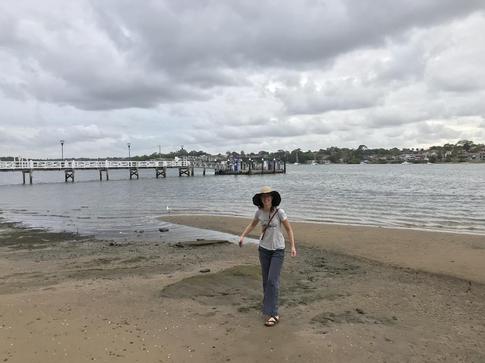
Standing on the mudflats of the Paramatta River in Sydney. Photo: A. Cross
When I was learning German we were asked to write an essay about a festival in our home country, preferably one that is not celebrated here. I scratched my head for a while, but then it occurred to me that you don’t need to have a different occasion to celebrate differently. Take Christmas. In Australia we try very hard to celebrate Christmas just like Europeans. We put pine trees in our living rooms, hang lights in our gardens, decorate shop windows with snowscapes… all of this while it’s summer outside, the trees are evergreen anyway and the sun doesn’t set until eight in the evening. But my favourite parts of Christmas are the summery parts. I love the picnics with mangoes and cherries and prawns. I must admit though, even if it’s an imported tradition that doesn’t suit the weather, that it wouldn’t be Christmas without an unseasonally heavy spicy fruitcake.
I once read that it is typical of Australians of Anglo-Celtic ancestry to claim they understand multiculturalism because they like to eat foods that other people brought to Australia. Guilty as charged. The foods I miss most from Australia aren’t Vegemite and Weetbix. I miss Hawat’s Coffee and Nuts where they had not only the best nuts, but the garlickiest dip ever. And fresh curry leaves from the Sri Lankan grocer. And Thai La Ong down the road from uni where the tofu is crispy on the outside and silky on the inside. I hope it will be easier to find these sorts of things in Hamburg than it was in Potsdam. Since the coronavirus pandemic, none of us shake hands any more. But I have to admit that I’ve awkwardly misjudged handshaking cues in Germany several times. How can handshaking be so hard – it’s international, isn’t it? In Australia, I would only shake hands with someone who I had just met, and probably only at work. These are very formal situations and they only occur once. With friends, if I’m not close enough to hug them, I smile, nod or wave at close quarters. Now shaking hands more often isn’t terribly awkward, but the problem comes up when someone shakes my hand and raises their other arm to slap me on the shoulder… I have accidently hugged several people who I was still “per Sie” with by misinterpreting the shoulder slap. Somehow my body-language reflexes interpret any two-handed movement as an invitation to hug people. So watch out – as soon as this pandemic is over I might hug you!Daniel Rivas
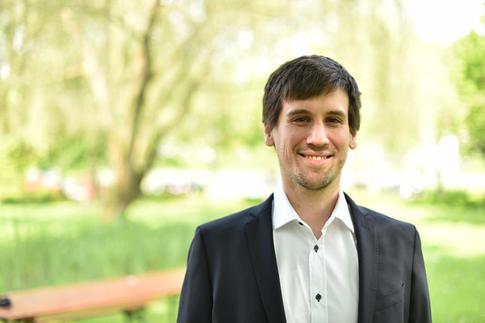
Daniel Rivas. Photo: M. Weidman
I moved to Germany to pursue my PhD studies. I went first to Munich, which is an attractive city and at the same time offered a world-class research atmosphere (the same applies to Hamburg!) I appreciate the amount of different cultures that can be found in Germany and in Europe in general, and how close everything is. This contributes to the open and diverse atmosphere.
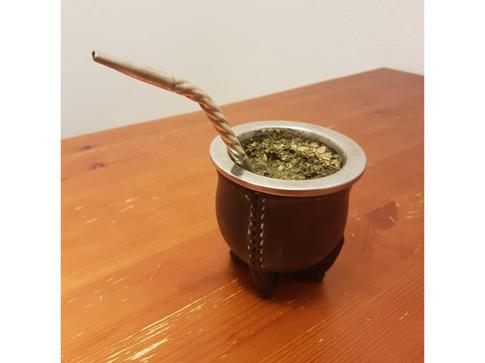
Mate tea. Photo: D. Rivas
I have noticed that I have adopted from Germany the practice of leaving my street shoes at the entrance to my house, and using house shoes at home. It is actually very practical.
The most important tradition in Chile is “The Dieciocho” (18th of September): which is our official national day. It involves traditional food, drinks, games, dancing and music over several days (plus a few more days to recover). You can even find Chileans celebrating this in Germany, particularly in Berlin.
Meike Flammer
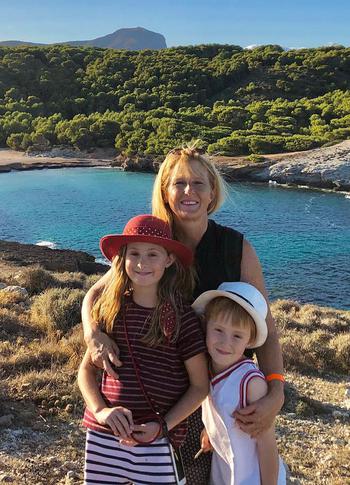
Meike Flammer with her children. Photo: M. Flamme
Before my job at DESY, I lived abroad for several years - my last station being the United Nations Mission in Liberia, West Africa, where I led a Human Rights office in a remote jungle village. It was so remote that there was no infrastructure to speak of – no bars or shops, no fresh food or electricity (apart from in my office) and even water had to be imported via helicopter. Whenever dark clouds appeared on the sky, I knew I was lucky enough to get a shower that day! Despite all that, my stay in Liberia was a great professional and personal experience. Once I returned to Germany I really appreciated the seemingly simple things again such as turning on the tap to get water for a safe drink or shower, to blend into the crowd and enjoy a stroll around town unnoticed, to meet friends for a drink in the pub and have a stable internet connection in the office.
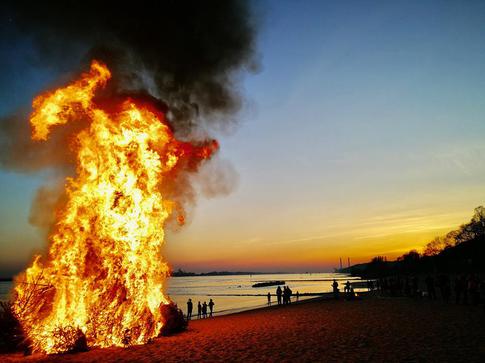
Easter bonfire on the beach. Photo: M. Flamme
I am not too fond of what you might call typical German food but prefer to select my favourite recipe from each country where I have lived and travelled. For example I loved the cassava leaves we had in Liberia, but also the spicy Mango-Salad they make in Vietnam, and the curries in India and Thailand. Also closer to home you can’t beat Swiss cheese fondue or an Italian tiramisu! I could go on!
My children’s favorite food, however, is „Maultaschen“, a large piece of pasta stuffed with meat and herbs which originate from Swabia, an area in south west Germany. You can either fry it until it is crispy with eggs and add a fresh salad or have them “swimming” in a chicken broth. There is actually a little anecdote around it - it was usually eaten in Southern Germany on Good Friday, when Christians were not allowed to eat meat. Supposedly, the Maultasche was invented by a monk with the intention of hiding the meat from God’s eyes by covering it with noodle pastry, which is how it got the nickname „Herrgottsbescheisserle“ (for those of you with very advanced German knowledge)!Cedric Signe Takem
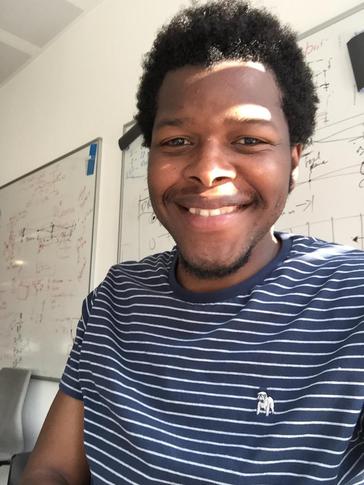
Cedric Signe Takem. Photo: C. Signe Takem
The best thing about moving to Germany has definitely been the change of perspective. I meet so many different people, not only Germans, but also people from across the world, and I get in touch with various cultures. This experience has been very enjoyable and enriching for me.
Moving here means that I only see the majority of my family quite rarely. I now plan to fly back every year, but I have only flown to Cameroon once. Luckily with technical advances, I can communicate with them at least every 2 weeks via Whatsapp, and Skype etc.
The biggest difference in culture between my home country and Germany is the role of family and community. In Cameroon people are more likely to give help to people of their family and their community then in Germany. We share our homes, our meals and our finances with our family or with the people that we consider being part of our extended family or community. The problem of one individual in the family or the community becomes the problem of the whole group.
